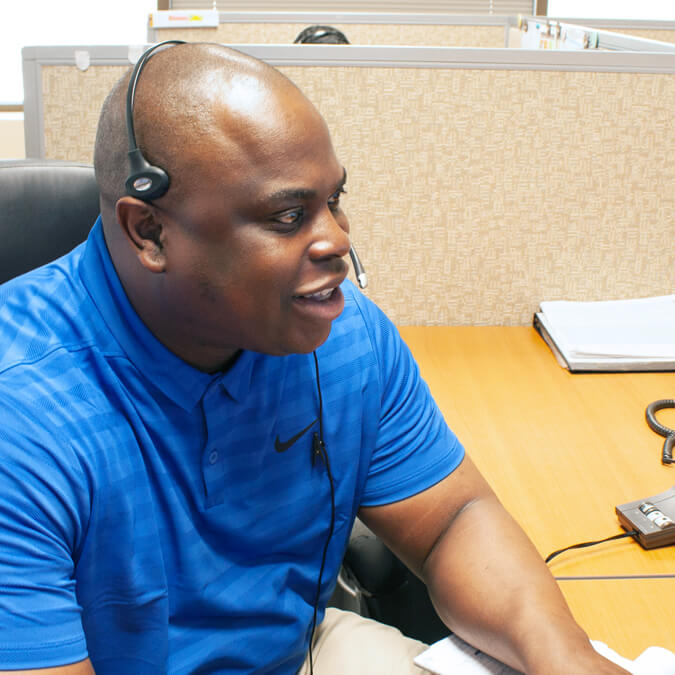
Florida Ignition Interlock Requirements
In Florida, people convicted of DUI may be able to regain their driving privileges back with a Hardship Permit if they install a Florida state-approved ignition interlock device, or IID. This guide outlines the Florida Ignition Interlock Device program and the steps required for compliance.
DEVICES AVAILABLE - If you need to install a device to meet your state requirements, we can help. Contact us today to schedule an installation appointment.
The Florida Ignition Interlock Program
Florida ignition interlock law says that drivers charged with DUI may have to install an IID in certain situations. While anyone caught committing an alcohol-related driving offense will have their license suspended or revoked for a court-ordered period, some can drive if they obtain a hardship permit and install a Florida ignition interlock device. Drivers are also subject to fines, and possible prison time, depending on the severity of the offense and if they have previously been convicted of DUI.
Some offenders may be eligible for a hardship permit if they meet certain criteria. If a driver has two DUI convictions, they may not be eligible for a permit. Anyone with a permit must install an ignition interlock device from a certified ignition interlock provider.
What Happens if I Get a DUI in Florida?
First DUI Offense
- Fine of $500-$1,000
- Fine of $1,000 to $2,000 if BAC is .15 or higher or a minor is in the car
- Up to 50 hours of community service (or a fine of $10 per required hour)
- Potential for imprisonment for up to six months, or up to nine months if a minor is present or BAC is over .15
- A state-approved interlock device may be required if a restricted license is requested
Second DUI Offense
- Mandatory imprisonment for 10 days if less than five years since previous offense
- Fine of $1,000-$2,000
- Fine of $2,000-$5,000 if a minor was in the car
- Potential for imprisonment for up to nine months, or up to 12 months if a minor is present or BAC is over .15
- IID required
Third DUI Offense
- Mandatory imprisonment of at least 30 days if less than 10 years since previous offense
- Potential for imprisonment for up to 12 months if more than 10 years since previous offense
- Drivers are fined $2,000-$5,000, or not less than $5,000 if BAC is above .15 or a minor was in the car
- IID required
Fourth DUI Offense
- Driver fined $2,000 or not less than $5,000 if a minor was present or BAC is more than .15
- Imprisonment for up to five years
- IID required
How Do I Get a Hardship Permit in Florida?
First Offense
- Complete DUI school
- Treatment, if referred, is required
- Install an ignition interlock Florida approves
Second Offense
- Wait one year from date of revocation
- Complete DUI school
- Complete any required treatment
- Install an interlock device Florida approves
- Get a favorable recommendation
- Present approval for early reinstatement to the DMV
Third Offense
- If other offenses are less than five years ago, drivers are not eligible for a hardship license
- If the offenses were more than five years ago, but less than 10 years ago, drivers are not eligible for a hardship license until two years of the revocation period is served, and the driver has met all other criteria
The Process: What to Expect
-
Consult with Legal Counsel
Seek guidance from a DUI lawyer to understand your legal options and rights following a DUI violation.
-
Get an Assessment
Complete a court-ordered or voluntary assessment to evaluate your risk level and determine any required interventions.
-
Obtain Proof of FR-44 Insurance, If Required
If applicable, provide proof of financial responsibility and insurance coverage with an FR-44 certificate.
-
Schedule Interlock Install
Speak to our State Specialists to schedule your IID installation to meet court or state requirements.
-
Regular Monitoring
Your ignition interlock usage will be regularly monitored to maintain compliance with legal requirements.
-
Device Removal
After fulfilling your IID requirement and receiving approval from your monitoring authority, you can arrange to have your ignition interlock device removed at your local service center.
Florida Ignition Interlock Device Cost

Expert DUI Attorneys in Florida
The Law Office of Adam B. Landeen
Tampa, FL 33602
Pallegar Law, P.C.
Tampa, FL 33607
Perlet & Shiner, P.A.
West Palm Beach, FL 33401
The Law Office of Alexander Pearson
Orlando, FL 32802
Florida FAQs
What is an ignition interlock device and why do I need one?
An ignition interlock device is a mobile breathalyzer that is installed in your vehicle to prevent driving while intoxicated. It is made up a handheld unit that is attached to your vehicles ignition system. You are required to blow into the mouthpiece to test your Breath Alcohol Concentration (BrAC) before starting your car. For more information see our what is an interlock page..
What are the Florida ignition interlock device requirements?
To view Florida IID requirements, please visit the Florida state page.
How much does an ignition interlock cost in Florida?
For pricing information, see Florida pricing.
What are the steps to get my ignition interlock device in Florida?
Please visit the Florida state page to learn what steps you need to take to get back on the road.
What information should I provide to get my ignition interlock device installed in Florida?
To learn more about the steps to regaining your license, please visit our Florida state page.
How do I find an installation location near me in Florida?
To find the Florida Intoxalock service center closest to you, please visit our Florida Ignition interlock installation locations.
When can I get my ignition interlock device removed in Florida?
The only way to confirm you are eligible to remove the device is to check with your monitoring authority.
What information should I provide to get my ignition interlock device removed in Florida?
Contact your monitoring authority to ensure you are eligible for removal.
What are the other DUI requirements in Florida?
Please visit the Florida state page to learn about other DUI requirements.
Can I get financial assistance to pay for my ignition interlock device in Florida?
For pricing information, see the Florida pricing page.
Where can I find other DUI resources such as a DUI attorney, treatment center, or FR-44 insurance in Florida?
To find a DUI attorney, please visit Intoxalock’s Florida DUI attorney partners page.
To find a Florida DUI treatment center, please visit Intoxalock’s DUI treatment center page.
How does an ignition interlock device work?
To see how an ignition interlock device works, visit our ignition interlock page and watch our video demonstrating how to use the device.
Where can I find more information on ignition interlock devices?
To learn more about ignition interlock information, please visit our ignition interlock device page.
Customers Have Great Things to Say
The information provided on this website does not, and is not intended to, constitute legal advice; instead, all information, content, and materials available on this site are for general informational purposes only. Information on this website may not constitute the most up-to-date legal or other information.
Readers of this website should contact their attorney to obtain advice with respect to any particular legal matter. Only your individual attorney can provide assurances that the information contained herein – and your interpretation of it – is applicable or appropriate to your particular situation.









